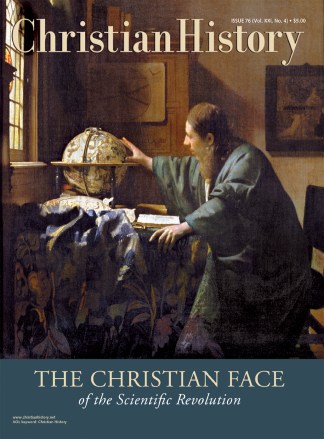Atheism is so much the worse that it is not buried in books,” worried Richard Bentley in an early Boyle lecture, “but is gotten [into life], that taverns and coffee-houses, nay Westminster-hall and the very churches, are full of it.” This invidious “atheism” so troubled Robert Boyle that his will provided for a lectureship “for proving the Christian Religion, against notorious infidels, viz. Atheists, Theists, Pagans, Jews, and Mahometans. …”
By “atheists” Boyle and his theological allies meant a growing attitude, not merely the formal denial of the existence of God. They fought the claims that this diffuse atheism spawned: that the foundation of the world is material, that there is no immortality of the soul, that the Bible is not divinely inspired, that there is no absolute morality, and so forth.
The title of Bentley’s opening lectures in 1692—The Folly and Unreasonableness of Atheism Demonstrated from The Advantage and Pleasure of a Religious Life, the Faculties of Human Souls, The Structure of Animate Bodies, & The Origin and Frame of the World—announced the foundation of their apologetic: Newtonian science.
Evidence exists, in fact, that Newton helped Bentley think through his lecture. Newton wrote in one letter, “When I wrote my treatise about our Systeme, I had an eye upon such Principles as might work with considering men for the beliefe of a Deity & nothing can rejoyce me more than to find it usefull for that purpose.” Thus the lecture became the first popular expression of Newton’s Principia.
The Boyle lecturers also fought on another front. Deists used the very same Newtonian ideas to remove God from the world and spoke of a nature of impersonal laws. The lecturers were anxious to prove that Newton’s theories required God’s direct involvement.
“There is no such thing as what men commonly call the course of nature, or the power of nature,” said Samuel Clarke in one lecture. “[It] is nothing else but the will of God producing certain effects in a continued, regular, constant, and uniform manner.”
The lectures became not only an influential apologetic for the Christian faith, but also a popular justification for the standing social order. The same Providence who generates the laws of the universe also oversees the workings of society, some lectures argued-thus there is a natural social order, with natural leaders. Men not only must conform to their station in life, but they should shape political and economic life to conform to the stability and harmony decreed by God. Such reasoning attacked thinkers like Thomas Hobbes, who sought social harmony (i.e., justice) through revolution.
Eventually, the first 40 years of lectures were published, which caused these ideas to be discussed all over Europe. Today the lecture series continues, but hardly anyone has heard of it. In the eighteenth century, however, no lectureship was more influential.
Mark Galli is senior editor of Christian History and managing editor of Christianity Today.
Copyright © 2002 by the author or Christianity Today/Christian History magazine. Click here for reprint information on Christian History.










